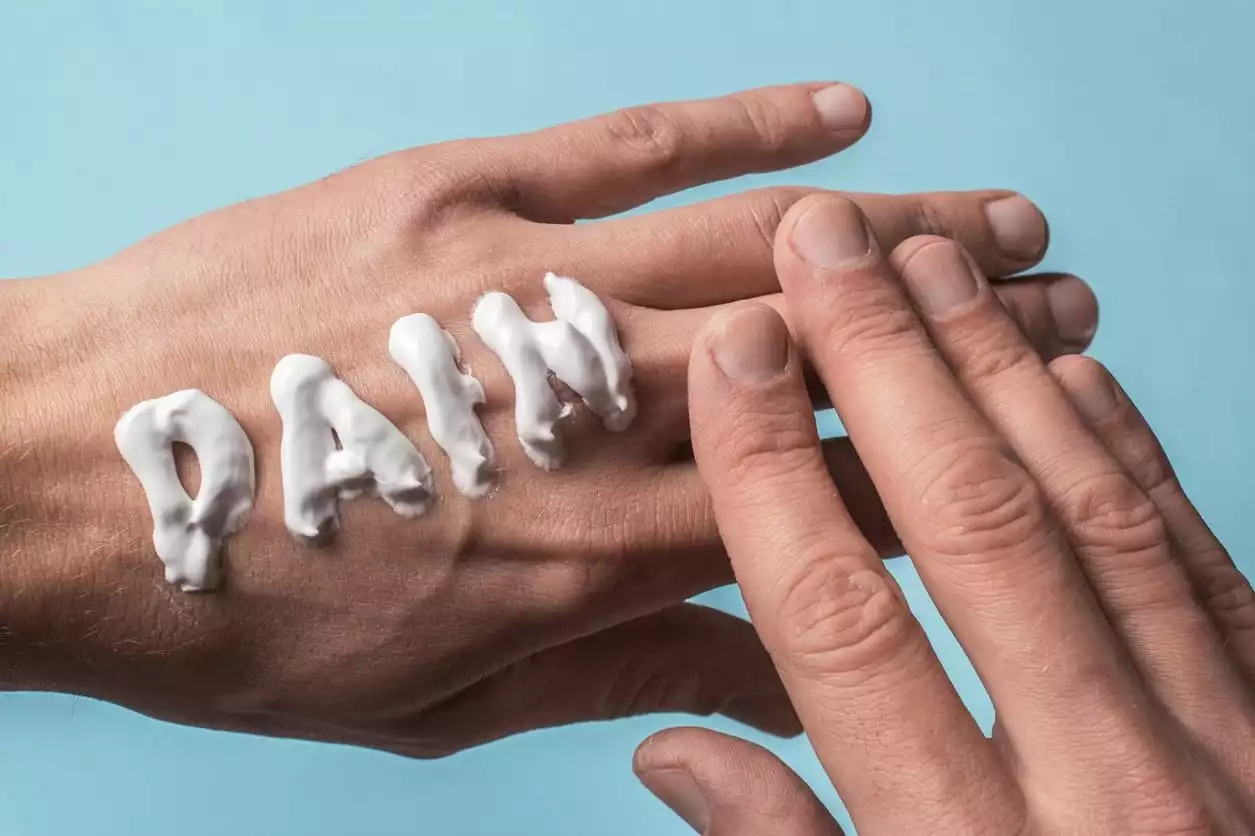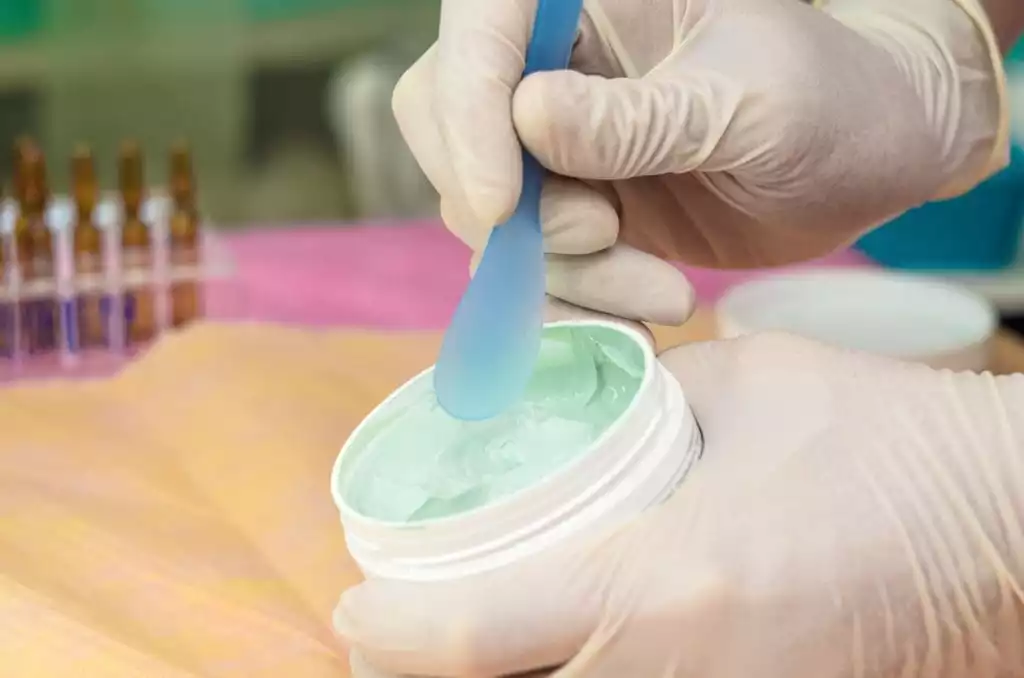
Eczema vs psoriasis: they are two common skin conditions that may seem similar, but in fact they have many differences, and different treatment needs.
Dry, itchy, and scaly skin can be immensely frustrating, especially when it feels nearly impossible to track down the cause.
Often, people go months or even years without a diagnosis only to discover what they really have is a condition like eczema or psoriasis.
Both eczema and psoriasis affect the skin, yet they aren’t really the same in origin or in treatment.
That’s why it’s so important to understand the differences between eczema vs psoriasis and seek an accurate diagnosis.
In this post, we’ll break down those differences and help you better understand them from the ground up.
What is Eczema?
Eczema is a skin condition that causes rough, scaly, or dry patches to develop on the skin.
It affects approximately 31 percent of Americans at any given time, and is sometimes referred to as atopic dermatitis.
Researchers don’t yet fully understand why some people seem to develop eczema, yet others don’t.
What we do know is that there seems to be a correlation with:
- Allergies
- Skin sensitivities
- Other immune-modulated disorders
However, it isn’t clear whether eczema is a true autoimmune disorder or just a reaction to allergens like dairy and hay or grass.
Certainly, some patients seem to experience a higher degree of symptoms during hay fever season and when they spend time around allergy triggers.
Eczema is not contagious, nor is it a product of poor hygiene, but proper care of broken or scaly skin is a must, especially during flares.
Without proper hygiene, it is possible for bacteria and yeast to build up, causing moderate to severe skin infections that lead to scarring.
Types of Eczema
Although atopic eczema is the most common form of the disorder, other forms do exist.
These forms include:
- Contact dermatitis: A skin condition caused by coming into physical contact with an irritant or allergen (like grass or pets).
- Dyshidrotic eczema: A condition that largely affects the feet and hands. It causes itchy blisters and occurs after physical contact with allergens.
- Nummular eczema: Sometimes referred to as “discoid eczema,” this condition is also directly tied to allergens. However, instead of blisters or scales, it causes round lesions to form that eventually leak clear or yellowish fluid.
- Seborrheic dermatitis: This form of eczema causes white or yellow flaky patches to develop on the skin that can look surprisingly similar to psoriasis patches. However, the patches that form in seborrheic eczema are caused by issues with localized sebaceous and sweat glands.
- Stasis dermatitis: Mostly caused by issues with circulation (and far more common in the elderly or Diabetic patients), this type of eczema causes swelling and leaking of surface-level veins. It may also result in edema (swelling) of surrounding tissue, inflammation, and redness.
- Hand eczema: Like atopic dermatitis in presentation, but generally only affects the hands. Can be severe enough to cause cracking, bleeding, and fairly extreme secondary infections if left untreated.
Some eczema patients also go on to develop a condition called lichen simplex chronicus with one or all of these forms of eczema.
Unlike the other types, LSC isn’t a distinct form; rather, it’s a term used to describe extreme symptoms like thick, scaly patches or large-scale breakouts that don’t abate with time.
What is Psoriasis?
When discussing eczema vs psoriasis, they are both skin conditions that causes rough, scaly, red patches to develop on the skin.
Often, these patches occur in “flare ups” lasting several weeks or months. They, too, may be caused or influenced by autoimmune issues, but the modality of psoriasis is much different.
Researchers believe that most cases of psoriasis are caused by elevated skin renewal cycles.
Normally, skin cells are created, live for a while, die, and then are sloughed off to reveal newer, healthier skin cells.
This process keeps your skin:
- Strong
- Flexible
- Elastic
It ensures your skin can effectively serve as a barrier against the outside world.
In patients who have psoriasis, the skin renewal process occurs at a much faster rate.
In fact, it becomes so rapid, that old, dead skin cells build up, creating scaly or even oily patches that cause irritation and even sometimes infection.
Types of Psoriasis
The most common form of psoriasis is plaque psoriasis.
It affects some 7 million Americans at any given time.
The term “plaque,” here, refers to the red, silvery patches of skin that develop during a flare.
However, psoriasis also occurs in several other forms:
- Guttate: Guttate psoriasis appears as small, drop-shaped red spots on the skin and may be mistaken for other rashes. It affects approximately 10 percent of sufferers.
- Inverse: Inverse psoriasis only affects patients in and around skin folds (such as under the breasts or around the groin). It can be very painful.
- Pustular: This form of psoriasis is also one of the most severe. In addition to scaly patches, patients develop clusters of weeping pustules that may break open or become infected. Other symptoms, like fever, headaches, and chills, are common.
- Erythrodermic: This form of psoriasis is also severe – sometimes, so much so that it becomes a medical emergency. The patient develops widespread red patches of broken and cracked skin that look very similar to burns. Often, most or even all of the skin is affected during a flare. The risk for infection is extremely high.
- Psoriatic Arthritis: In a small number of patients, psoriasis begins to affect other parts of the body, such as the gastrointestinal tract or joints. This is called “psoriatic arthritis” because the symptoms manifest very much like other forms of rheumatic or autoimmune arthritis. Swelling, joint damage, and serious illness are possible.
How Are These Conditions Similar?
In both cases of eczema vs psoriasis, they cause scaly patches, but that’s really where the similarities end.
Most scientists agree that both are influenced by autoimmune issues, but psoriasis is caused by excess skin cell renewal rates specifically.
This is probably tied to genetics or a flaw in certain genes.
Eczema, on the other hand, is more reactionary to allergens and/or irritants in the patient’s immediate environment.
Treating Eczema vs Psoriasis
For patients with either disorder, it can be difficult to find the right solution. In fact, treatment often comes down to trial and error with various medications.
Even then, some patients may become resistant to treatment over time, needing newer or stronger medications to manage their symptoms.
1. Eczema
A common treatment to eczema is managing allergen influences and limiting access to certain foods, like dairy or wheat.
However, results can vary significantly because no two patients have the same triggers.
Patients with eczema may also benefit from the use of barrier pain creams containing compounded drugs or medications to re-hydrate, seal out infection, and heal the skin.
There is no evidence that Vitamin D works in eczema cases.
2. Psoriasis
Psoriasis, on the other hand, is less likely to be caused by foods. However, it can be exacerbated by stress – so lifestyle changes may help to reduce flares.
Both systemic and topical steroids can help patients with these conditions.
Due to the risk of becoming immunocompromised, their use is generally only availabe for severe cases or acute flares.
Research shows that patients with psoriasis may benefit from topical vitamin D analogues.
These substances are sourced from vitamin D and signal localized skin cells to slow renewal, limiting the potential for flares.
Conclusion
Eczema vs psoriasis can be a difficult and painful process to manage. Luckily, if you suffer from either of these conditions – you have options.
Speak with your pharmacist to begin your path to wellness once again.
You CAN love the skin you’re in – even if it isn’t always perfect!

 info@burtsrx.com
info@burtsrx.com

